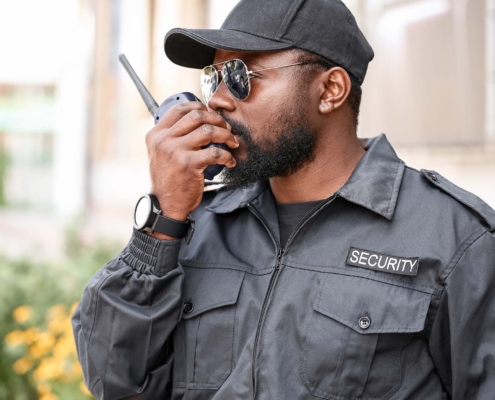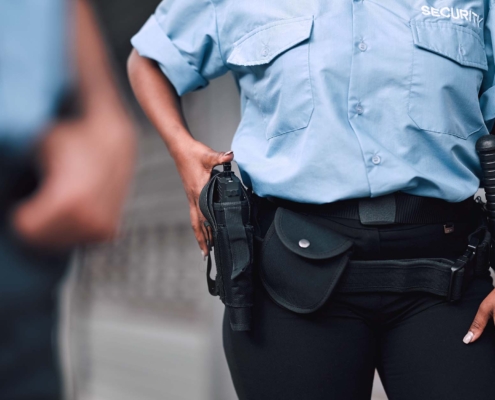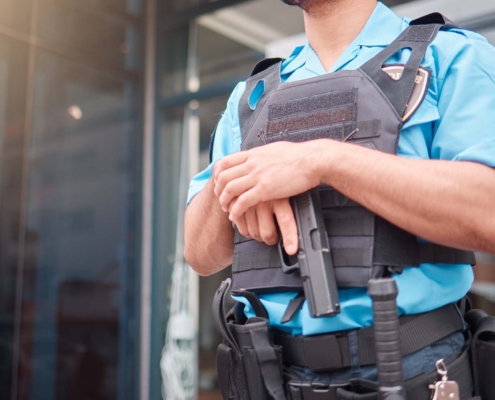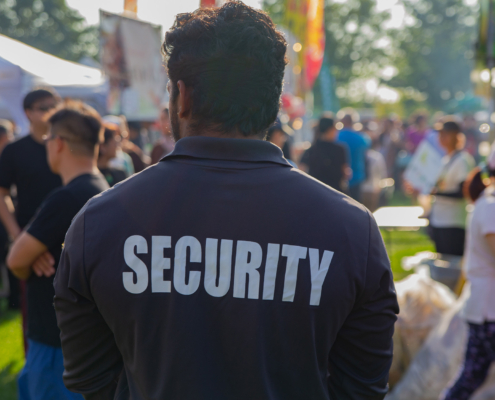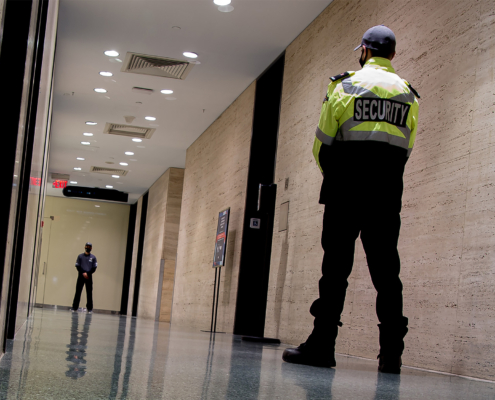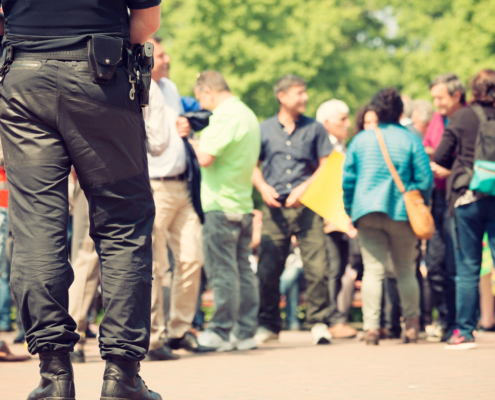Criminals weigh risk against reward. When a capable guardian—an armed officer in clear uniform—stands between them and their target, their scale is more than likely going to tilt hard toward “too risky.”
Routine-activity theory tells us crimes occur when a motivated offender meets a suitable target with no guardian present. Armed guards reintroduce that guardian, raising the perceived cost of wrongdoing.
Authority cues matter. Firearms, radios, body armor, and confident posture all send an unmistakable signal: any violent act will meet swift opposition.
Uncertainty is powerful. Would-be offenders can’t predict the guard’s tactics or skill level, so many decide not to try at all.
Think of it as preventive medicine for crime—treating the problem before it takes root.

